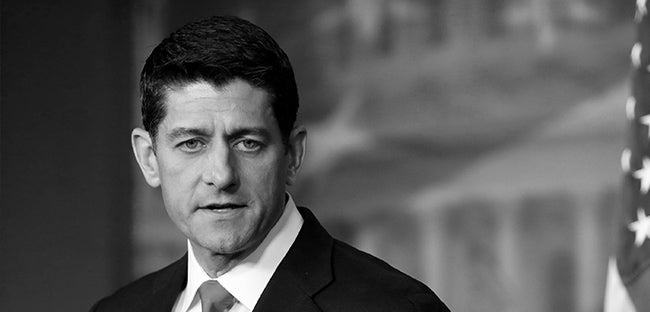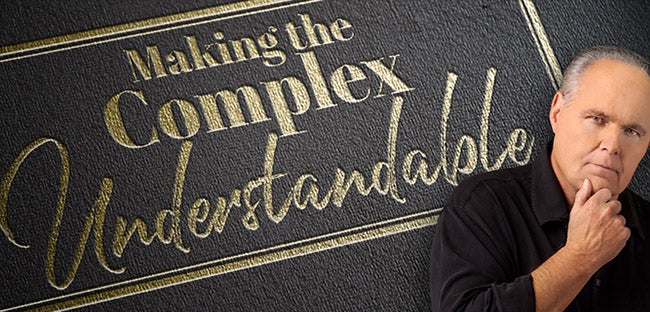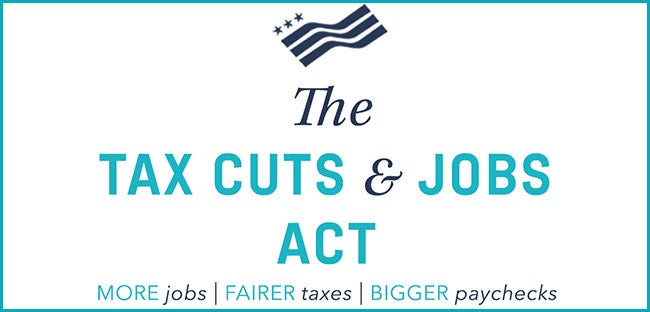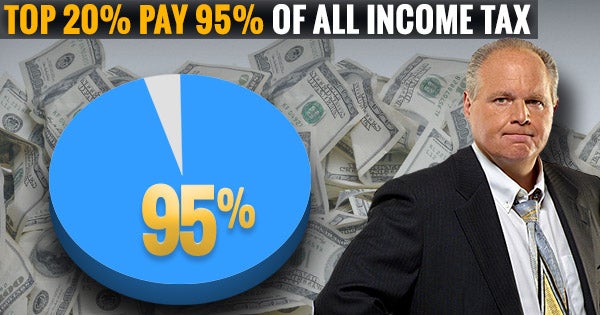RUSH: CNBC has a story today: “Senate’s GOP Tax Reform Bill Seeks Repeal of Obamacare Individual Mandate.” So you have the House tax bill. This isn’t in it. And I asked Paul Ryan why not when he was here last week for an interview. And then the Senate releases their bill and hot damn if it isn’t there.
I’ll tell you something. It’s important. If we get rid of the Obamacare individual mandate, then we have gutted Obamacare. That is a significant portion of repealing Obamacare. So let’s go to the audio sound bites, and we’re first gonna focus on sound bite number 3 and number 4. This is a replay of the interview back on November 7th that I did with the Speaker of the House, Paul Ryan.
 RUSH ARCHIVE: There’s something else here that I don’t understand, either. I saw this headline at TheHill.com. It’s at a number of places. “GOP Unlikely to Repeal Obamacare Mandate in the Tax Bill.” Now, Senator Cotton is leading an effort to include a repeal of the mandate in the tax bill. There’s no language for this in the House bill. The Hill says that the chairman of Ways and Means, Mr. Brady, expressed worry because trying to repeal the mandate could jeopardize the broader bill. You know, the reason, you could do it, it’s a tax, because the Supreme Court said it was a tax in order to legalize Obamacare so why can’t you just get rid of that in one fell swoop?
RUSH ARCHIVE: There’s something else here that I don’t understand, either. I saw this headline at TheHill.com. It’s at a number of places. “GOP Unlikely to Repeal Obamacare Mandate in the Tax Bill.” Now, Senator Cotton is leading an effort to include a repeal of the mandate in the tax bill. There’s no language for this in the House bill. The Hill says that the chairman of Ways and Means, Mr. Brady, expressed worry because trying to repeal the mandate could jeopardize the broader bill. You know, the reason, you could do it, it’s a tax, because the Supreme Court said it was a tax in order to legalize Obamacare so why can’t you just get rid of that in one fell swoop?
SPEAKER RYAN: Well, obviously I’m in favor of getting rid of it. We’re in favor of — we passed our repeal and replace of Obamacare in the House back in May. So the House is clearly on record for getting rid of this mandate and repealing the whole thing and replacing it with patient-centered health care. It’s what you just said, the question is whether or not we have the support to do it in tax reform or not. And that’s something that a lot of members are talking about with themselves and so it’s something that people are suggesting. Right now the Ways and Means Committee, which is doing the tax law is focused on the tax policy, is not focused on anything else at this time.
RUSH ARCHIVE: It would be so great to get rid — you get rid-of-that and you’ve taken the guts and the heart and the soul out of Obamacare.
SPEAKER RYAN: You have no argument with me.
RUSH: That’s Speaker Ryan back on November 7th. And it was clear that, well, we’re not doing Obamacare bill here. We’re doing a tax bill. If they want to mess with it over there, that’s fine, I just soon it be gone too, but we’re not we’re not gonna combine these two things here because we want to stay focused on the tax bill.
So the Senate presents their bill and the individual mandate’s gone. But before you start clapping, wait a minute. There’s something I need to inform you that you may not have learned if you didn’t read far enough in the story about this. But first here is Speaker Ryan this morning CNBC Squawk Box. He’s talking to Becky Quick. She said, “Your membership,” meaning the House Republicans, “voting tomorrow on the tax reform bill, and it just got a lot more complicated by what the Senate chose to do overnight by wrapping a partial repeal, the Obamacare individual mandate. Now, we’ve always said tax reform’s really tough, maybe nothing tougher than health care reform. So by putting these two together, what does that do in terms of what you have to do to convince your membership to stay loyal to your tax bill?”
RYAN: We’ve had the House votes to do that. We passed our repeal of the individual mandate back in May, but we never had the votes in the Senate. So what we didn’t want to is make tax reform harder than it already is. But it really is whether or not the Senate has the votes for this or not. So we’re seeing what the Senate can do. If the Senate can get it through committee, if they can get it to the floor, then we’ll meet ’em in conference and we’ll assess at that time. We’ve passed this two or three times, most recently in May. Look, do we like the individual mandate? Of course we don’t like the individual mandate.
RUSH: We did it. We got rid it. We don’t need it in our bill. But if they’re gonna put it in there, then we’ll consider it. So if they put it in there, we’ll consider it. So this is one of these things where obviously Speaker Ryan didn’t oppose it, didn’t want to put it in the House bill, the Senate has put it in theirs, and that’s cool. However, ladies and gentlemen, buried in the article here on the CNBC story, “Senate’s GOP Tax Reform Bill Seeks Repeal of Obamacare Individual Mandate,” let me read to you a line, as I say, buried in the article.
“Senator Thune also said the deal agreed upon is to pass that bill alongside another bill, known as Alexander-Murray, which would restore key federal subsidy reimbursements to Obamacare insurers cut off last month by President Donald Trump.”
So a little history. The Obamacare payoffs to the insurance companies in the form of subsidies were unconstitutional because they were illegal, because that was federal spending which did not originate in the House of Representatives and thus was not in the legislation. It was Obama simply issuing his executive order or executive action. And what had happened was that the premium prices in Obamacare for middle class, lower middle-class people were priced in such a way that insurance companies couldn’t hope to even break even, much less make a profit.
 So in exchange for the insurance companies offering premium prices where they would lose money, Obamacare said, don’t worry, I’ll subsidize you. We’ll get money from the Treasury. We will subsidize you, insurance companies. So go ahead and offer voters the low premium so I get the credit for reducing costs, you go ahead and agree to price it where you lose money and I’ll subsidize you on the back end. And that’s what happened. And that has been the way Obamacare’s been functioning from the get-go.
So in exchange for the insurance companies offering premium prices where they would lose money, Obamacare said, don’t worry, I’ll subsidize you. We’ll get money from the Treasury. We will subsidize you, insurance companies. So go ahead and offer voters the low premium so I get the credit for reducing costs, you go ahead and agree to price it where you lose money and I’ll subsidize you on the back end. And that’s what happened. And that has been the way Obamacare’s been functioning from the get-go.
Now, those low prices are not low, but they are lower than they otherwise would have been. If the prices were from the get-go priced for the insurance companies to break even, make a profit, they would have really been unaffordable for most everybody. But the insurance companies, “You’re gonna give us money?” Obama said, that’s right. So they lowered the prices, making it appear to be more affordable for middle and lower middle-class people, of course the poor, and Obama subsidized them.
Now, Trump came along after nine months of patience, waiting for Congress to rid itself of Obamacare in general, to repeal it, and that had not happened, Trump said, okay, you know what? I’m gonna get rid of these subsidies cause I’ve gotta kill this. This is gonna implode. The way it’s written it will implode and since Congress isn’t gonna get rid of it, I’m gonna hasten implosion.
So he removed the subsidies. He took back the free money Obama was giving insurance companies. Move forward to the Senate tax bill. The Senate tax bill repeals the individual mandate. But another bill called Alexander-Murray features the reintroduction of subsidies to the insurance companies. Now, these would be legal if the House goes along with it, and if it’s in legislation, it would then be legal.
But the point is, the Republicans in the Senate want to find a way to continue or to reinstitute the kickbacks to the insurance companies. And so the play is, “Okay, we’ll go along with your tax reform bill to an extent,” they say to the House. And then they say, “We’ll even repeal the individual mandate. We’ll take that burden away from you so all you have to do is agree to it, but we’re gonna put those subsidies back in.” So that apparently is the fine print.
Senator Thune “told the Washington Post there are 50 Republican senators willing to support the mandate repealing tax reform bill, which would be enough to pass it,” as long as Mike Pence is in there to break the tie, the vice president.
“Thune also said the deal –” this is near the end — “Thune also said the deal agreed upon is to pass that bill alongside another bill, known as Alexander-Murray, which would restore key federal subsidy reimbursements to Obamacare insurers cut off last month by President Donald Trump. The Democratic leader in the Senate, Chuck Schumer of New York, was scornful of the Republican decision,” with the usual bromides of cutting taxes for the rich and so forth. But that’s where we are on this, and admittedly it’s further down the road than people thought it would get, so we shall see.
BREAK TRANSCRIPT
RUSH: Here’s Rich in Racine, Wisconsin. Great to have you, sir. How are you?
CALLER: I’m doing fabulous, boss. How you doing today?
RUSH: Fine and dandy. Thank you for asking.
CALLER: I live in the heartland of, you know, mid-America, Paul Ryan’s my representative, which means I have no representation at all.
RUSH: Now, now, now, now, now.
CALLER: (Unintelligible) information that they’re trying to, you know, put that in where they’re gonna reimburse the insurance companies. That just doesn’t seem right —
RUSH: Wait, it’s not Ryan, though. That’s a Senate provision that they’re gonna —
CALLER: Oh, believe me, they’re gonna try to use that as the negotiating chip.
 RUSH: Okay.
RUSH: Okay.
CALLER: They’re not as good as Donald at getting the best end of a deal. I’m just not that confident that they’re gonna walk away — they’re gonna screw it up. In my humble opinion, I think they’re gonna blow this, right down to everything that’s going on with the Alabama election —
RUSH: Wait, wait, wait. They’re gonna blow what?
CALLER: Tax reform. I don’t think they’re gonna do it, I think they’re gonna choke, something’s gonna go wrong. I think Mitch’s — honestly, I don’t think he wants to be on the Trump team.
RUSH: Who, Ryan?
CALLER: Ryan, I think he’s gotten actually I think he might have got the word. It got to the point where I got on a first-name basis with the guy at his office because people from his direct are constantly calling. Everybody I talk to is unhappy with our representation, I mean, just the way things are going —
RUSH: Okay, I misheard. You said it’s Mitch that you don’t think wants Trump to win. You realize what’ll happen if they don’t get this done, right?
CALLER: Honestly, I don’t believe they want to run it. They don’t. I think they’re all in this altogether. I think that the establishment takes care of the establishment. I think if it wasn’t for you and Sean and Mark Levin and others, you know, we would be on our own out here.
RUSH: Well, here’s the thing. If they don’t do this, if this doesn’t get done, they are in really big trouble in 2018. And a lot of these guys, in order to stay in the establishment, they have to win elections. Not everybody in the establishment has to win elections, but members of the House and the Senate, they have to. And if they don’t get this done after the year that they’ve had, if this doesn’t happen, or if it happens and it ends up not being at all what they are saying it is, there’s gonna be hell to pay at the ballot box in 2008. And I think they know this.
They have stalled and they’ve delayed throughout the whole year on Obamacare. It’s an entitlement and I don’t think they ever wanted to take that away. The Republicans don’t ever want to be the ones to go down in history that take money away from the poor. That’s the way it’d be treated. That’s the way it’d be reported. But tax reform, that’s a Republican signature issue. That’s a Republican signature ID issue. They’ve got to do this.
But let me tell you something I heard in numerous places. Last night there was a town hall meeting on the Fox News Channel and Paul Ryan, your representative, was one of the roundtable guests or one of the town hall guests. You know, when I was interviewing him here, I said, “What’s one take-away? What should people know about?”
“It’s a tax cut, Rush. It’s a tax cut for the American people.” Well, some people have taken the guts of the deal, and they have been measuring various aspects of the tax reform plan with real-life circumstances. And they have found some middle class people — I forget the exact example, but husband and wife make $127,000, three kids in school, da-da-da-da-da, they have found some examples. And Ryan was hit with this last night where these families are gonna have, at the end of it all, a tax increase. They’re gonna be paying more than they’re paying now.
 And Ryan’s answer, “Well, you may able to find some of those, but I’m telling you,’ he insisted, “the average American, everybody’s gonna get a tax cut. You may be able to find an odd example here or there where it may not be the case.” So he acknowledged that there might be some outlier cases where people will end up paying more even after getting a rate reduction, and it all has to do with the deductibility of property taxes and state and local taxes and some other things.
And Ryan’s answer, “Well, you may able to find some of those, but I’m telling you,’ he insisted, “the average American, everybody’s gonna get a tax cut. You may be able to find an odd example here or there where it may not be the case.” So he acknowledged that there might be some outlier cases where people will end up paying more even after getting a rate reduction, and it all has to do with the deductibility of property taxes and state and local taxes and some other things.
But the point of this is that not everybody is going to get a tax cut, or not everybody is going to be paying less. That would be the more accurate way of saying this. And I don’t think there’s any excuse for that. And you know why this is the case? The reason why is because — dadelut dadelut dadelut — we have to find a way to pay for it. I would maintain to you that in terms of real dollars and cents, if Washington finds a way to, quote, unquote, “pay for this tax cut,” then there isn’t a tax cut. If, when this is over, Washington collects the same amount of money from the same number of people, how can there have been a tax cut? I’m getting perplexed looks.
BREAK TRANSCRIPT
RUSH: Now, back to my tax reform question. Remember, Paul Ryan was in a town hall on Fox last night and they hit him with some scenarios of people who make $127,000 a year, 140, families, certain number of kids, after the tax reform bill, if it becomes law, they will actually pay more in taxes even with the rate reductions and all that. A number of people have taken the tax reform bill as it is with the rate reductions and the differences in what you can and can’t deduct, and they’ve applied these specifics to certain actual family examples. And they have found these examples. I don’t know how many. I don’t know how widespread it is.
But when the selling point is every American will see their taxes cut, well, that may be true, but they may end up paying more. There’s a big difference in your tax rate being cut and the effective tax rate you pay, and there’s a big difference in your tax rate being cut and your total tax owed. And where this gets hairy is in the areas of the new reform law where certain property or state and local income taxes will no longer be deductible. Those people are gonna see a rate reduction, and they’re gonna see the standard exemption doubled.
 But with certain deductions taken away, they’re actually going to be paying a few more dollars in total tax even after receiving reductions in their rates and so forth. And so Speaker Ryan was hit with these examples and asked, “How can you say you’re cutting taxes for everybody when these examples exist?” And he said, “Well, I’m just telling you, for the average American taxpayer, this is a great deal. Everybody is gonna be paying less, or everybody’s gonna get a tax cut.” Everybody getting a tax cut does not mean everybody is paying less.
But with certain deductions taken away, they’re actually going to be paying a few more dollars in total tax even after receiving reductions in their rates and so forth. And so Speaker Ryan was hit with these examples and asked, “How can you say you’re cutting taxes for everybody when these examples exist?” And he said, “Well, I’m just telling you, for the average American taxpayer, this is a great deal. Everybody is gonna be paying less, or everybody’s gonna get a tax cut.” Everybody getting a tax cut does not mean everybody is paying less.
Now, you realize here that every aspect of this bill is done under a premise that must be adhered to, and that premise is that every one of these tax reforms must be paid for. What does that mean? What it means is that for every dollar lost, quote, unquote, every dollar the government loses by having a taxpayer keep it, the government must reclaim that dollar somewhere else in order to pay for that dollar of tax cuts.
So if the bill must be revenue neutral, if tax reform must be paid for, then simple mathematics tells me that if Washington is going to collect the same amount of money from the same number of people after tax reform, then what tax reform has there been? Real tax reform would mean the government has less money when it’s over, by definition. How does the government get its money? By taxing people, primarily, and also the manufacture and sale of weapons, international arms sales, government has land that it buys and sells. But for the most part, the federal government is funded by taxing the income and productivity of people who work in the United States. The government takes a cut of everything everybody earns.
Now, if the government’s gonna reduce its take, i.e., cut the tax rate, the percentages, then the government ought to end up with less money. But if their intent here is to, quote, unquote, pay for this, what that means is the government cannot have less money after this is implemented. Now, I’m dealing here with the static analysis. I can hear some of you shouting at the radio, “But, Rush, but, Rush, if they cut taxes, it’s gonna raise revenue.” Yes, it does. But the way it happens is that it creates more taxpayers.
A genuine tax cut, a genuine tax rate reduction, specifically, folks, a genuine marginal rate cut, will grow the economy. The reason is simple. More money is being kept in the economy. Less money is being taken from people and going to Washington. More money is staying, therefore, in the U.S. economy. And whether that money is saved or whether it’s invested or whether it’s spent doesn’t matter. All of that is happening within the U.S. economy. And, as such, by definition, it cannot help but expand.
And when that economy expands, businesses, many of them, not all, but many of them will also grow, and they will need more employees. And because they have more money to hire people because of tax cuts, they will create more taxpayers. And so cutting taxes creates more taxpayers by way of creating more jobs, and that’s how the government gets additional revenue.
I’ve often had people get stymied, you know, ’cause it’s axiomatic, there’s a line where this no longer works; there’s a point on a chart where it no longer works. But when you cut tax rates, the government ends up with more revenue. And to a lot of people the mathematics doesn’t work out. How can that be? How can Washington have more money after keeping less?
 The way it happens is and the way it happened in the eighties, and it happened like it had not happened before, more jobs were created and economic growth was skyrocketing and more jobs are created, and that caused more growth, which caused more hiring. And the cycle went on for eight or 10 years.
The way it happens is and the way it happened in the eighties, and it happened like it had not happened before, more jobs were created and economic growth was skyrocketing and more jobs are created, and that caused more growth, which caused more hiring. And the cycle went on for eight or 10 years.
And then we lived off that through the nineties and the Clinton years. And that’s how. But if the objective of any government’s tax cut plan is to end up where the government doesn’t lose any money, then what tax cut has there really been overall? That’s why this whole notion of paying for it, that’s liberal talk. That’s the way the Democrats approach government. And what it means is government can never get smaller. Government can never do with less. And of course we as conservatives, that’s the objective is to make government smaller, to make it more efficient, to get it more out of the way, ’cause government doesn’t produce anything.
All government does is realign and redistribute wealth, but government does not create it. If anything, government destroys it. So the idea that after our massive tax reform plan here the government’s gonna stay the same size, then how has there actually been a tax cut resulting in more money in the U.S. economy? But on the political side of this, they can’t afford not to do this. It’s a signature issue for the Republicans, 2018 midterms are coming up. They’ve already close to blown it by not repeal Obamacare after seven years of promises. You know that drill.
And I think they’re very much aware that they have to do this, politically, regardless what the numbers end up being. There needs to be that grand celebratory ceremony at the White House Rose Garden where everybody is happy as they can be and the signing ceremony takes place and we announce that we’re cutting taxes for the first time significantly since 1986. They need that politically. And they know it, which is why I think they’re going to do everything they can to make it happen.




